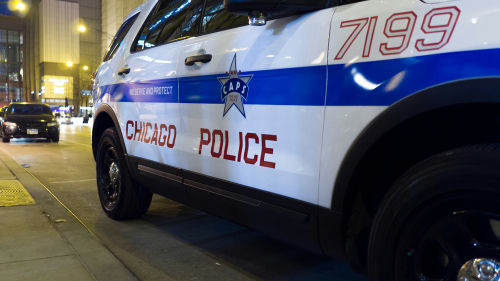President Trump’s direct threat to send federal forces into Chicago exposes a constitutional showdown and a battle over who truly protects American communities.
Trump’s Warning: Federal Action Looms Amid Chicago Violence
On Saturday, President Donald Trump issued a blunt warning to Illinois Governor J.B. Pritzker following yet another violent holiday weekend in Chicago. With at least eight killed and 48 wounded, Trump declared on Truth Social that Pritzker must “straighten it out, FAST, or we’re coming.” He referenced a recent deployment in Washington, D.C., emphasizing the success of federal intervention and suggesting that similar measures could be applied to Chicago. Trump’s remarks immediately fueled national debate about the role of federal authority in combating urban crime, especially when local leadership appears unable or unwilling to restore order.
Within hours, Chicago Mayor Brandon Johnson responded by issuing an executive order designed to resist any federal involvement. The order specifically prohibits city officials from cooperating with federal immigration enforcement and requires transparency from any federal agents operating in the city. Governor Pritzker reinforced this stance, publicly rejecting Trump’s threat and labeling it “unconstitutional” and “a dangerous power grab.” Pritzker and other Democratic officials warned that federal intervention would not only violate state rights but also set a troubling precedent for the nation.
Legal and Political Standoff: State Autonomy vs. Federal Power
The growing feud between Trump and Pritzker underscores a larger constitutional question: how far can the federal government go in overriding state and local authority? Legal experts point out that, under normal circumstances, governors control their own National Guard units. Federalizing these forces—especially against a state’s wishes—would likely spark a fierce legal battle. The standoff has immediate implications for the balance of power in America, as local officials accelerate administrative and legal countermeasures to block any perceived federal overreach.
Both sides are actively preparing for confrontation. The White House has amplified criticism of Pritzker, citing the city’s high crime rates as justification for extraordinary action. Meanwhile, Chicago officials warn that military-style intervention could escalate tensions, disrupt daily life, and undermine civil liberties. This fight is about more than just crime—it’s about safeguarding the constitutional framework that limits federal power and preserves state sovereignty, a core principle for many conservative Americans.
Community Impact and Expert Concerns Over Federal Policing
Chicago residents have long suffered from persistent violence, but many now fear the prospect of militarized law enforcement in their neighborhoods. Past federal deployments in American cities—including Washington, D.C. and Los Angeles—have generated controversy and significant legal challenges. Retired Maj. Gen. William Enyart and other experts caution that National Guard troops are not trained for civilian policing and warn that such actions could inflame tensions rather than restore order.
Trump Slams Pritzker After Chicago Violence: ‘He Better Straighten It Out, FAST — or We’re Coming!’https://t.co/jFJWWB4bh8
— G_Kraig (@g_kraig) September 1, 2025
Economic and social costs also loom large. A previous deployment of 1,200 Guardsmen cost taxpayers an estimated $54 million over four months. The expansion of federal power into local policing could erode community trust, trigger protests, and deepen partisan divides ahead of the next election. For conservatives, the debate is not merely about law and order, but about defending the constitutional guardrails that protect individual liberty, state autonomy, and traditional values from federal intrusion.
Broader Implications: Precedent, Political Calculations, and the Road Ahead
This standoff between President Trump and Illinois officials is shaping up to be a defining moment for federalism in America. If the federal government can deploy the National Guard or override state and local law enforcement at will, the precedent could fundamentally alter the relationship between Washington and the states. Political strategists speculate about the motivations behind these moves, including the looming presidential race and the desire to showcase law-and-order credentials.
Ultimately, the outcome will have lasting consequences for Chicago, for the country’s constitutional order, and for the ongoing struggle to preserve conservative values in the face of what many see as relentless left-wing overreach. As the situation evolves, Americans must remain vigilant—because the fight over who secures our streets is also a fight for the heart of our republic.
Sources:
Trump warns Illinois governor to fix Chicago or ‘we’re coming’
Trump slams Pritzker, Chicago crime, governor’s reported weight loss fuels 2028 speculation
Illinois Gov. Pritzker: Military National Guard Chicago “invasion” Trump
Labor Day violence in Chicago prompts Trump National Guard warning
Click this link for the original source of this article.
Author: Editorial Team
This content is courtesy of, and owned and copyrighted by, https://www.rightwinginsider.com and its author. This content is made available by use of the public RSS feed offered by the host site and is used for educational purposes only. If you are the author or represent the host site and would like this content removed now and in the future, please contact USSANews.com using the email address in the Contact page found in the website menu.





